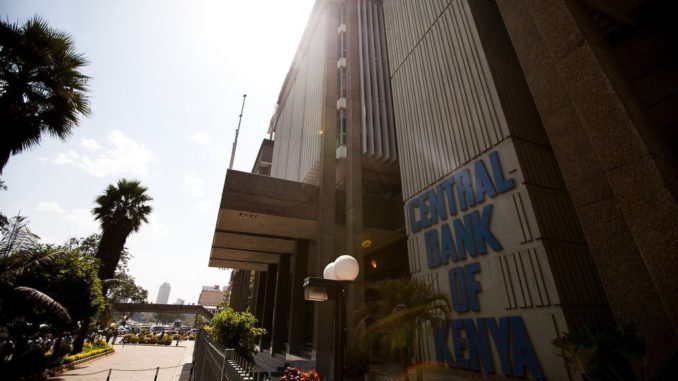
Considering how high the stakes are, anything short of a credible poll this time around would almost certainly lead to violence. Fellow economists view these developments as short term risks to Kenyan asset, with the shilling likely to be volatile consequently. The political outlook would thus be on the top-of-mind at the central bank’s meeting this week.
The monetary policy committee of the Central Bank of Kenya (CBK) meets this week (September 18) amidst tensions around a court-mandated presidential election re-run, now set for October 17 by the Independent Electoral and Boundaries Commission (IEBC). The earlier one held on August 8, saw incumbent president and ruling Jubilee party candidate, Uhuru Kenyatta, emerge as winner, in a result contested by opposition National Super Alliance (NASA) candidate, Raila Odinga. With a second bout now imminent, Mr. Odinga has asked for changes in the leadership of the IEBC. Hitherto at loggerheads, the IEBC leadership emerged from a recent retreat with a unified front for the upcoming poll. Mr. Odinga would have none of it. He wants the IEBC chief executive, Ezra Chiloba relieved of his position. President Kenyatta disagrees, insisting the current leadership is competent enough to handle the election. After initially threatening a boycott, Mr. Odinga now says that there would only be an election if the changes he has asked for are made. A botched meeting last week was supposed to enable the parties iron out their differences. Until all the parties concerned reach a compromise, how peaceful the October 17 poll would be remains to be known. Considering how high the stakes are, anything short of a credible poll this time around would almost certainly lead to violence. Fellow economists view these developments as short term risks to Kenyan asset, with the shilling likely to be volatile consequently. The political outlook would thus be on the top-of-mind at the central bank’s meeting this week.
Dark Political Clouds
Depending on the choices Mr. Kenyatta and Mr. Odinga make ahead of the upcoming re-run election and in its aftermath, the current dark political clouds hanging over Kenya could either rain peace or heck. It is in the interest of all parties that the former be the case. Otherwise, it would be a waste of the tremendous amount of goodwill towards Kenya at the moment, after its Supreme Court demonstrated unprecedented strength by choosing to pass a difficult and potentially destabilising judgement. What that portends in the long term is that market participants would likely come to trust the country’s institutions; something not entirely the case at the moment. But none of that potential gain would come about if the election re-run proves to be violent and inconclusive. In fact, it is now not so much the poll outcome that matters but how free, fair and transparent the process is. And quite frankly, it is a little difficult to see how these can be accomplished if the same leadership that carried out the botched one is also the same one that conducts the re-run. If the poll is to be considered credible at all, some changes in the IEBC leadership would be required. And not only that, the umpire’s officials found to be culpable for the irregularities identified by the Supreme Court must be prosecuted. In this regard, much rests on the full judgement yet to be released. Having observed developments since its ruling, the court must use its full judgement to provide, with utmost clarity, information about what went wrong, who were responsible for the wrongs and the parameters for prosecuting them.
Extraordinarily high food inflation (36 percent of the consumer price index basket; including non-alcoholic beverages) hitherto have by and large started to ease. Because even as it rose to 13.6 percent in August from 12.2 percent in the prior month, it certainly compares better to almost 22 percent three months earlier.
Better Inflation Outlook, Subdued Growth Though
Extraordinarily high food inflation (36 percent of the consumer price index basket; including non-alcoholic beverages) hitherto have by and large started to ease. Because even as it rose to 13.6 percent in August from 12.2 percent in the prior month, it certainly compares better to almost 22 percent three months earlier. In any case, the outlook is favourable. The maize harvest has started. Drought conditions have also abated; albeit the damage it caused to agricultural output (about 30 percent of GDP) earlier in the year, in addition to tight credit conditions due to an interest rate cap law and ongoing political uncertainty, would likely slow 2017 growth to just above 5 percent, from an earlier forecast of almost 6 percent.
Most recent data show the prices of key staple food items like maize, wheat, sugar and so on have fallen quite significantly. Take the case of maize; the price for a sack has reduced by about 40 percent. Same for wheat, which is down by about 10 percent. Annual consumer inflation, 8.0 percent in August from 7.5 percent a month earlier (and 12 percent in May), would likely slow to just a little above 7 percent by year-end, if my forecasts are vindicated. But the headline inflation would likely be at least 8 percent in September and October, before likely slowing thereafter; in part due to base effects. Still, price pressures remain: monthly inflation rose to 0.6 percent in August after dropping by almost 1 percent in July. Still, in September, the finance ministry retained the country’s inflation target band of 2.5-7.5 percent. The treasury would be maintaining the band for the sixth year running now. With inflation expectations still high and the headline likely above the upper bound of the authorities’ target band for at least another two months, the CBK is likely to keep its benchmark rate unchanged at 10 percent when it announces its decision on September 18.
Rafiq Raji, a writer and researcher, is based in Lagos, Nigeria.
END

Be the first to comment